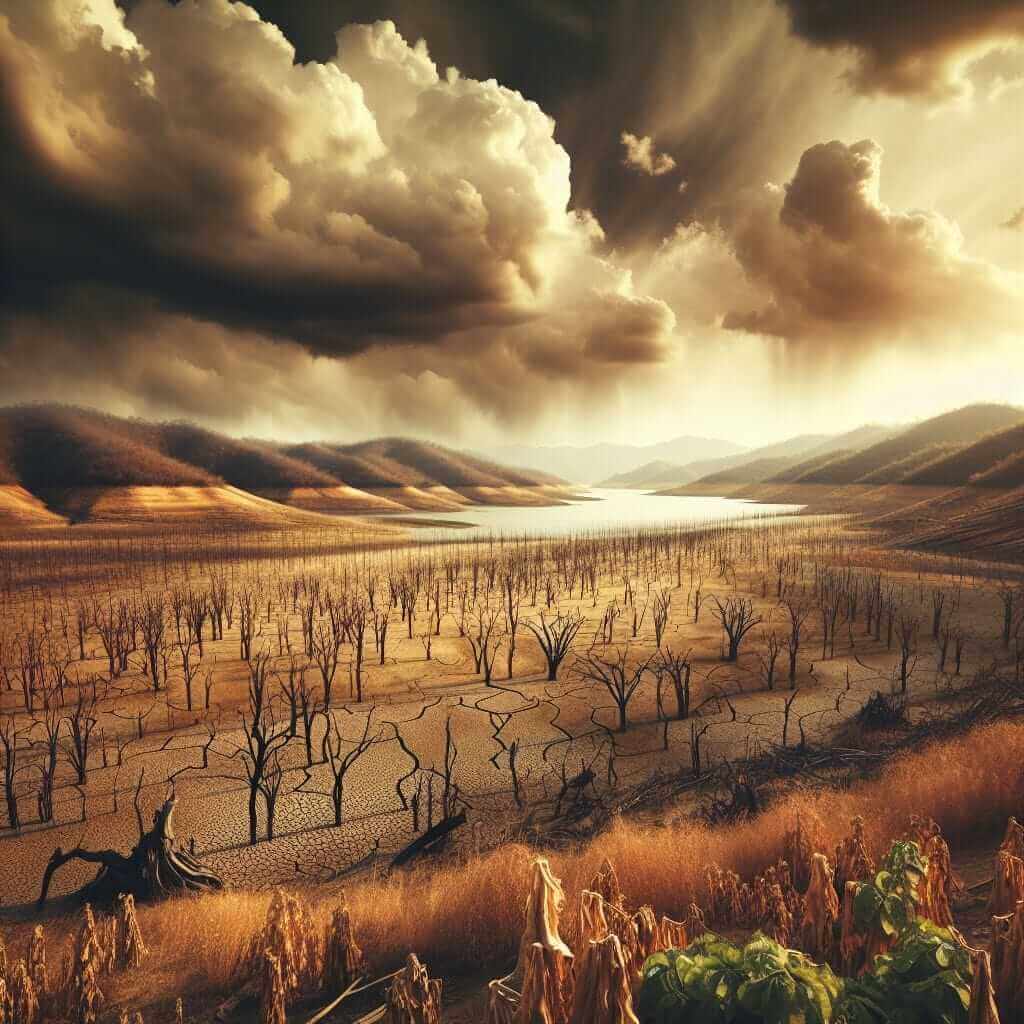The IELTS Reading test assesses a range of reading skills, including understanding the main ideas, identifying details, recognizing the writer’s opinions, attitudes, and purpose, and following an argument. The topic of climate change and its effects on food security has been widely discussed and frequently appears in IELTS Reading materials due to its global relevance. In the past, the topic was included in various real IELTS exams, and given its importance, it’s likely to appear again in future tests.
In this article, we will provide you with a full IELTS Reading practice test on the topic “What are the effects of climate change on food security?” followed by detailed questions and answers. This practice will help you prepare effectively for the IELTS Reading test.
Practice Reading Test
Reading Passage
Climate change has far-reaching impacts on various aspects of human life, with food security being one of the most critical. Food security is about ensuring that all people have access to sufficient, safe, and nutritious food to maintain a healthy life. The effects of climate change on food security can be both direct and indirect.
One of the direct impacts of climate change on food security is through changes in weather patterns. Extreme weather events such as droughts, floods, and storms can reduce crop yields. For instance, prolonged droughts can deplete water resources necessary for irrigation, whereas floods can destroy crops and displace farming communities.

Another significant impact is on the nutritional quality of food. Research has shown that elevated levels of carbon dioxide can reduce the protein and mineral content of staple crops such as wheat, rice, and soybeans. This decline in nutritional value can lead to deficiencies in essential nutrients, exacerbating the problem of hidden hunger, where people may consume enough calories but lack vital nutrients.
Climate change also affects food security indirectly by disrupting ecosystems. Changes in temperature and precipitation patterns can alter the distribution and populations of pollinators and pests. This can lead to reduced pollination rates and increased crop damage from pests, further threatening food production.
Moreover, socio-economic factors play a role in mediating the effects of climate change on food security. Vulnerable communities, particularly in developing countries, are more likely to experience severe impacts due to their lower capacity to adapt. Limited financial resources, inadequate infrastructure, and lack of access to technology can hinder their ability to cope with climate-induced food production challenges.
Adaptation strategies are essential to mitigate the impacts of climate change on food security. These include developing climate-resistant crop varieties, implementing sustainable farming practices, improving water management, and enhancing food distribution systems.
Questions
1. Multiple Choice
Choose the correct answer.
-
What is one of the direct impacts of climate change on food security?
- A. Increase in population
- B. Changes in weather patterns
- C. Growth in urbanization
- D. Advancement in technology
-
How does climate change affect the nutritional quality of food?
- A. Decreases protein and mineral content
- B. Increases carbohydrate levels
- C. Leads to higher vitamin concentrations
- D. Enhances taste and flavor
2. True/False/Not Given
Do the following statements agree with the information given in the reading passage? Write True, False, or Not Given.
- Prolonged droughts can replenish water resources necessary for irrigation.
- Developing countries are more vulnerable to climate-induced food production challenges.
3. Sentence Completion
Complete the sentences below using NO MORE THAN TWO WORDS from the passage.
- Elevated levels of carbon dioxide can reduce the __ and mineral content of staple crops.
- Adaptation strategies include developing __ crop varieties and improving water management.
Answer Key
Multiple Choice
-
B. Changes in weather patterns
Explanation: The passage states that climate change impacts food security directly through changes in weather patterns like droughts and floods. -
A. Decreases protein and mineral content
Explanation: It mentions that elevated levels of carbon dioxide reduce the protein and mineral content of staple crops.
True/False/Not Given
-
False
Explanation: The passage states that prolonged droughts deplete water resources, not replenish them. -
True
Explanation: The passage discusses that developing countries are more vulnerable due to limited resources and capacity to adapt.
Sentence Completion
-
protein
Explanation: The passage indicates that elevated levels of carbon dioxide reduce the protein and mineral content of crops. -
climate-resistant
Explanation: The passage mentions that adaptation strategies include developing climate-resistant crop varieties.
Common Mistakes
Many test-takers make mistakes when they don’t carefully read the instructions or misinterpret the information in the passage. Ensure you fully understand the question and refer back to the passage to find the exact answer.
Vocabulary
- Nutritional Quality (noun): The content and composition of nutrients in food.
- Pollinators (noun): Insects or animals that transfer pollen from one flower to another, facilitating plant reproduction.
Grammar
When working on IELTS, pay attention to complex sentence structures used in academic texts.
- Relative Clauses: Useful for adding extra information:
- Example: “Climate change, which affects food security profoundly, poses many challenges.”
Conclusion
To excel in the IELTS Reading test, practice regularly with texts on current issues like climate change and food security. Understand the question types, manage your time effectively, and review your answers thoroughly.